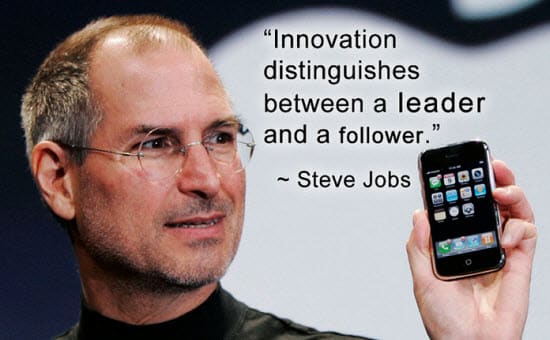(Source: Flickr)
This is the fifth instalment of my conversation with Nigel Lake, CEO of Pottinger, a global corporate advisory firm based in Sydney, Australia. Nigel is the author of The Long Term Starts Tomorrow, a must have book “for any manager, leader or Minister.” The Hon Mike Baird MP, Premier of NSW

When Jobs died the whole organisation sort of thought, we’ve just to keep on making the phone the same way because that’s what Steve Jobs would have done. But that wasn’t really who he was because he was someone who was continually reinventing all these things.
Apple got into a really pretty dark place with the iPhone 5, which just looked so kind of yesterday, and then impressively re-discovered its mojo and ability to say, look that was yesterday and we have to reinvent ourselves. They then created the iPhone 6, which is a tremendously good product and has sold incredibly well.
Tom: So they weren’t responsive to the needs of customers and what people were telling them.
Nigel Lake: That’s right.
People in senior roles got sort of hung up on “there was this guy, and he told us to do everything, and that’s what he would have told us to do” without realising that the world had moved on.
[Steve Jobs] was someone who could do something one day very very passionately, and then have the kind of whatever it takes to say, “that was then and this is now and the world has changed, and maybe we should think differently”.
When he died it left quite a shadow over the organisation but it has somehow reinvented itself. If you think about what happened the first time around when Jobs was booted out, it was a complete disaster. This time around they have managed to continue, reinvent themselves, reinvent the phone product, and bring the watch to market to what seem like quite strong reviews so far.
Tom: I guess it’s yet to be seen how things will play out. One question mark over Apple is that Tim Cook is an operations guy whereas the whole company’s magic is based around innovation, being nimble and being willing to change.
Nigel Lake: It’s going to be an amazing story to watch for the next five years or more to see what happens to that business.
It’s a fascinating thing, because on the one hand it’s hard to think of organisations which have really dominated some particular segment that have survived radical innovation in their segment. And yet on the other hand, you look at the world’s largest companies from a few decades ago and there haven’t necessarily been huge changes in those names. But that’s partly because things like oil and gas are still very big industries.
It’s starting to change quite rapidly now.
